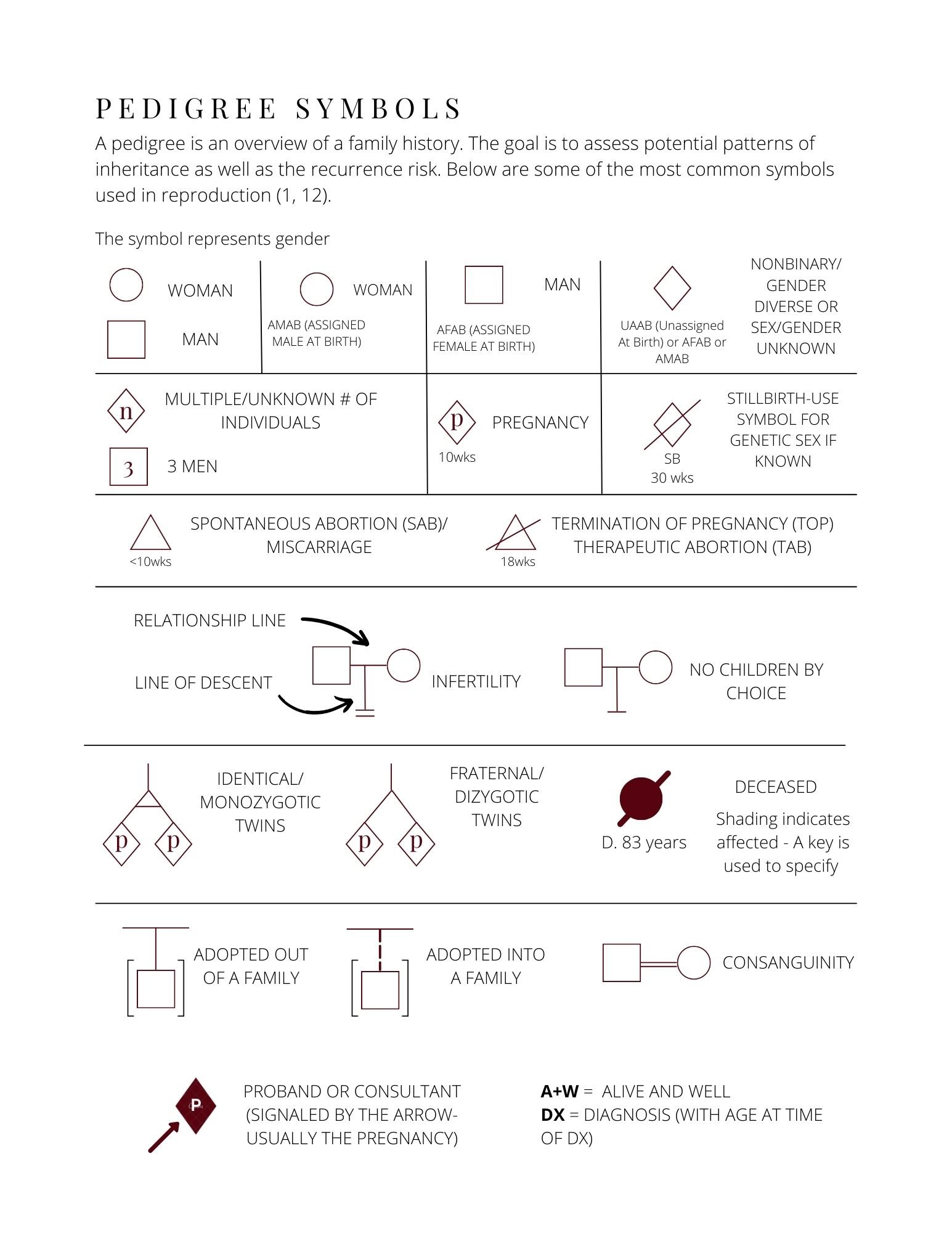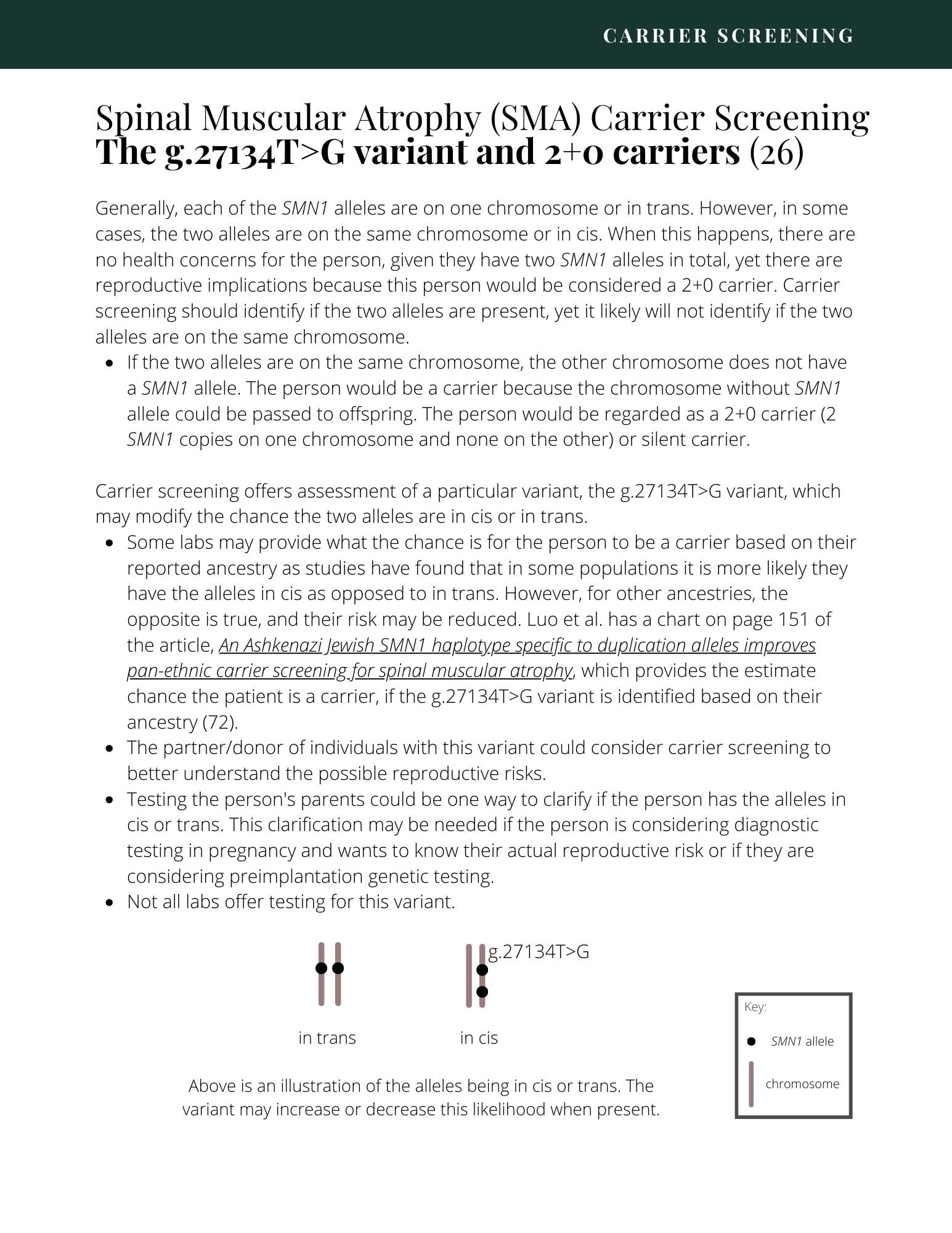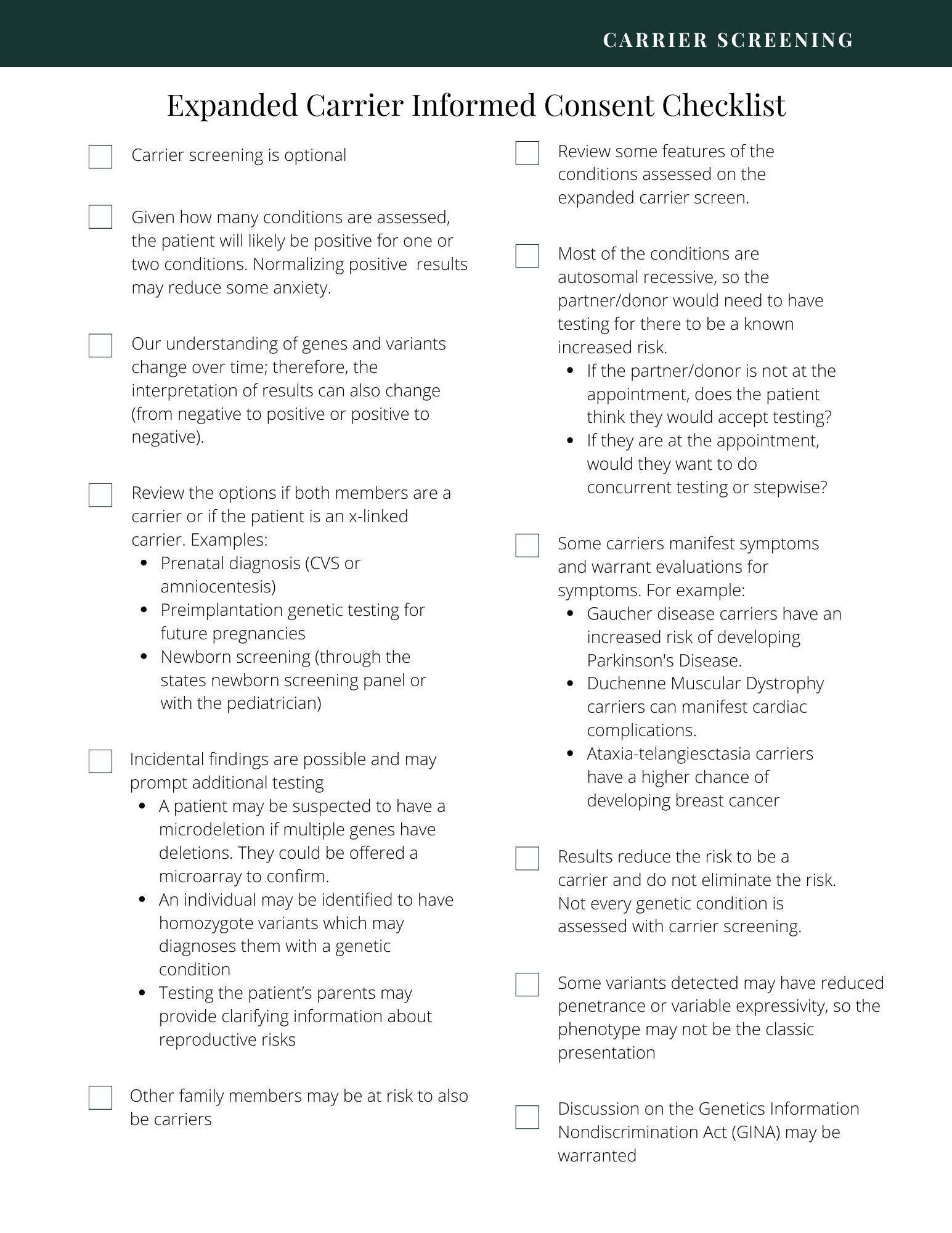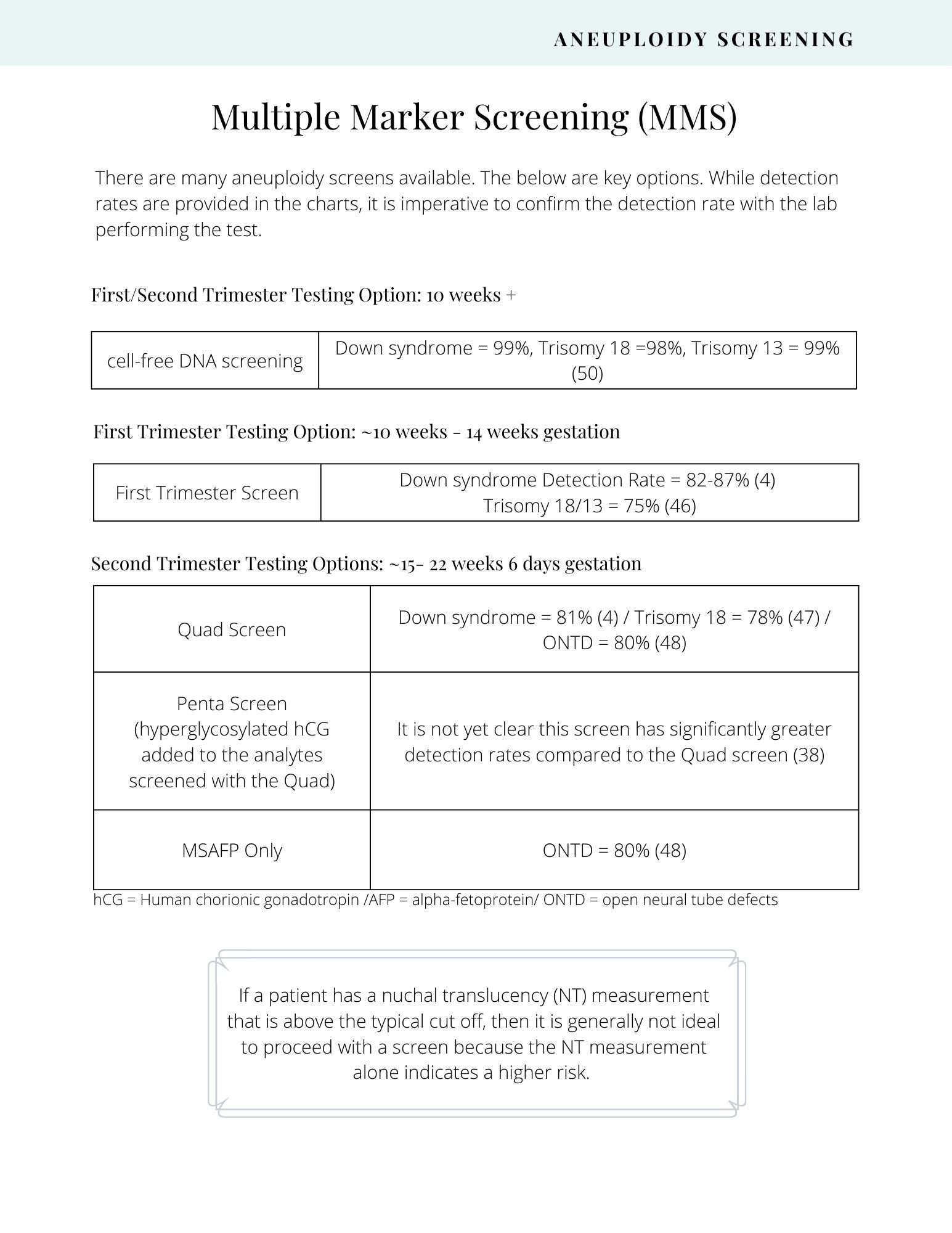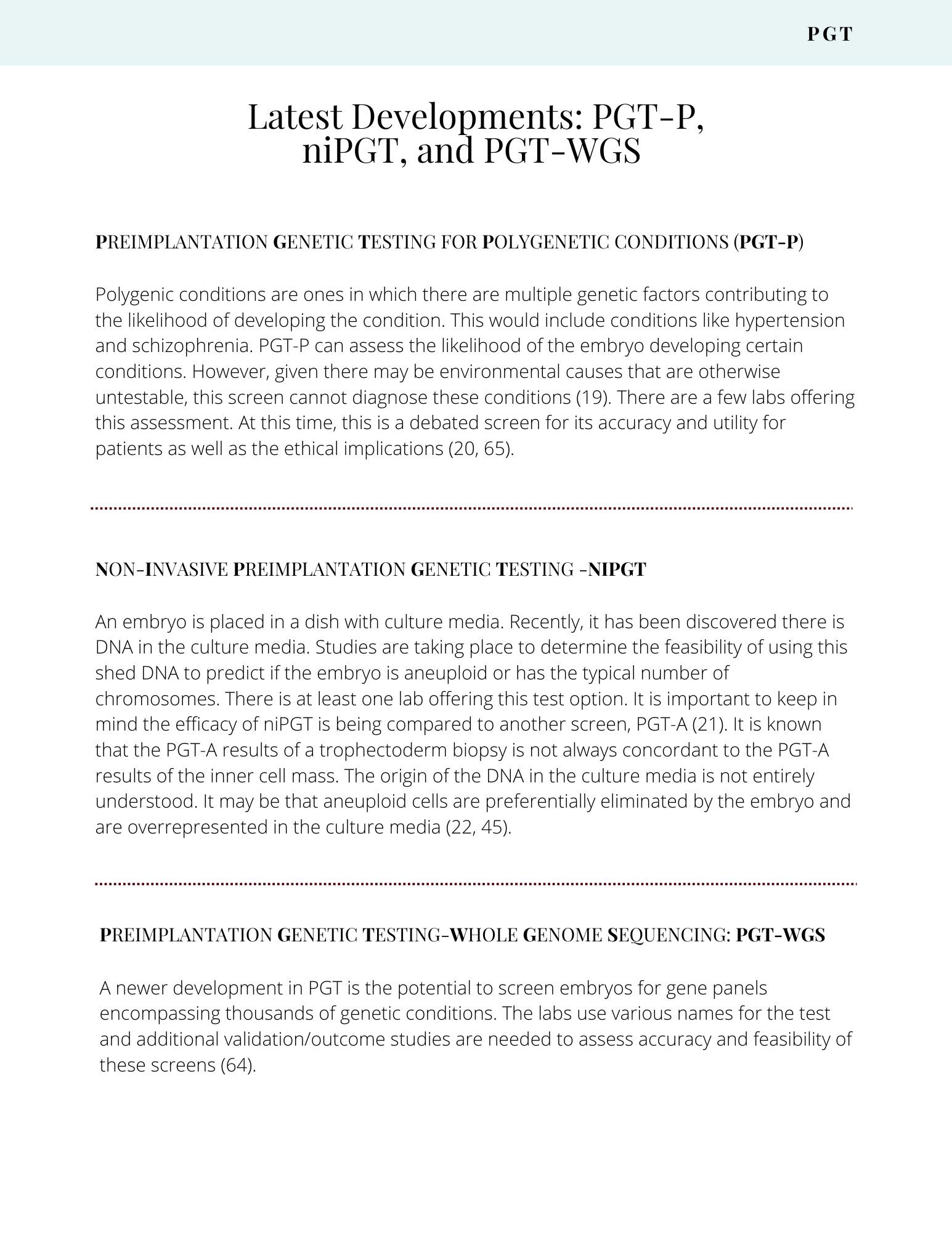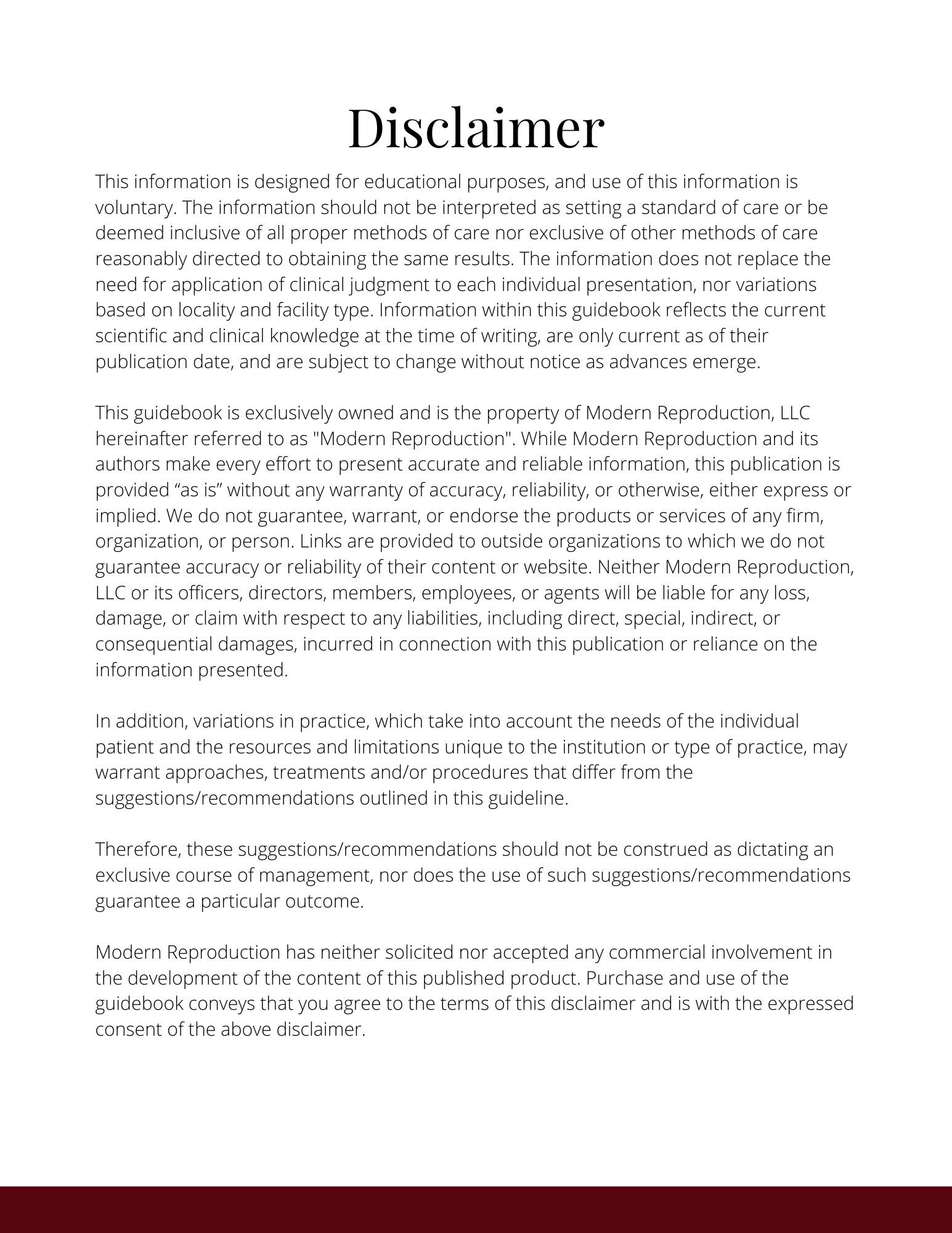
The Reproductive Genetics Guidebook
The Reproductive Genetics Guidebook:
A portable, up-to-date reference for reproductive genetic testing
This guidebook is designed to serve as a “genetic counselor in your pocket” - a carefully curated, downloadable eBook (PDF) with clickable links throughout. It covers essential topics for clinics specializing in reproductive health, including:
Cell-free DNA (cfDNA) screening
Carrier screening
Preimplantation genetic testing
You’ll also find guidance on how to choose the right laboratory, interpret test results, and stay current as new technologies emerge. Real case studies are included to bring practical insights into common decision points.
Developed by a prenatal and preconception genetic counselor and reviewed by peers in the field, this guidebook synthesizes up-to-date guidelines, peer-reviewed studies, and expert perspectives. It serves as a reference for healthcare providers - including physician assistants, nurses, OB/GYNs, midwives, trainees, and genetic counselors - working in reproductive genetic testing. As an eBook, it is updated annually to reflect the latest developments.
Please Note: This guidebook is for educational purposes only. It is not medical advice. Clinical decisions should always be based on your expertise, patient history, and referrals to relevant specialists (e.g. genetics, MFM, reproductive endocrinology). Purchase and use of the guidebook conveys that you agree to the terms of the book’s disclaimer and the site’s Terms and Conditions.
Who is this for?
-
OB/GYNs, physician assistants, nurse practitioners, and midwives often face questions about reproductive genetic testing without immediate access to a genetics specialist. This guidebook provides clear, concise explanations and evidence-based resources to help you feel more confident in your discussions with patients and in selecting the right tests for each situation.
-
Reproductive endocrinologists and fertility clinic staff will find curated information on preimplantation and prenatal genetic testing, laboratory considerations, and case-based examples. This guidebook helps teams improve communication with patients and supports decision-making in clinics that may not have dedicated genetic counselors.
-
For residents, fellows, and students in medicine, nursing, or genetic counseling, this guidebook serves as a compact learning resource. It provides foundational knowledge as well as links to in-depth materials, making it a practical tool both for study and for clinical rotations.
-
This guidebook is designed to save time for busy genetic counselors by consolidating essential references into one place. Whether you’re in prenatal, fertility, or general practice, you’ll find quick access to the latest guidelines, summaries of key studies, and curated resources to support patient care and streamline counseling. It can be used as a guide for supervision as well.


